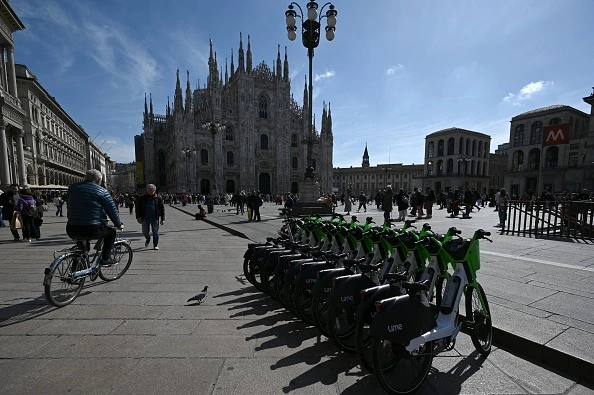
In a ranking released by the Clean Cities Campaign (CCC), 42 European cities were evaluated based on their commitment to shared and zero-emission transportation options. The results revealed some unexpected front runners, challenging the dominance of traditional leaders like Copenhagen, Oslo and Amsterdam. Surprisingly, cities such as Ljubljana, Budapest and Milan emerged as rising stars in sustainable urban mobility.

The CCC report assessed cities on multiple indicators, including shared bikes and e-scooters, shared electric cars, zero-emission buses and public electric vehicle (EV) charging infrastructure. Two key findings emerged from the study:
- Shared bikes, scooters, and EVs hold the potential to revolutionise urban mobility by providing viable alternatives to private car ownership. The report highlights that the widespread availability of these services, even in car-dependent areas and underserved regions lacking robust public transportation, can facilitate the transition to a more sustainable urban transport system.
- Shared and electric mobility solutions offer a simpler, more cost-effective, and faster means of implementation compared with large-scale infrastructure projects like underground rail services. This affordability factor makes shared mobility an attractive option for cities aiming to accelerate their shift towards zero-emission transportation.
Top cities for shared and zero-emission transportation
Copenhagen and Oslo claimed the top spots in the ranking, showcasing their commitment to sustainable urban mobility. However, Manchester and Dublin found themselves at the bottom of the table, indicating a need for improvement in their efforts.
The progress made by cities in adopting shared and electric mobility options can largely be attributed to consistent political choices and timely investments. Implementing effective regulatory frameworks to manage shared transportation played a crucial role in cities like Milan, which secured a high ranking in the CCC’s assessment. Milan’s success stems from its robust fleet of free-floating electric scooters and bikes, as well as the introduction of zero-emissions buses.
Ljubljana and Sofia also made significant strides by directly embracing electric car-sharing services, while Hamburg leveraged a strategic partnership with operators to make car-sharing a cornerstone of its transport system.
Conversely, most British and Spanish cities (excluding Madrid and London) lagged behind in providing zero-emissions shared transport services, including e-bikes, scooters, and EV car-sharing.
“City leaders that show leadership and ambition are able to make wise and nimble investment decisions which can super-charge their efforts towards a zero-emissions urban future. It’s not primarily about having more money – cities that are not among the richest have far outperformed their peers through good regulatory frameworks and forward-looking planning," said Barbara Stoll, director of the CCC.
A closer look at urban mobility transformation
Further analysis of the ranking revealed significant variations among cities across different indicators. Helsinki claimed the top spot for shared bikes, boasting an impressive fleet of over 20,000 bikes. In contrast, Edinburgh failed to provide a single shared bike.
Regarding emissions reduction in public transport, cities that prioritised early investments in electric buses outperformed those relying on hybrid technologies. Glasgow utilised the 2021 climate summit to accelerate the electrification of its bus fleet, while Milan increased its zero-emissions bus fleet from a mere 1% in 2018 to almost 25% by the end of 2022. Several cities are on track to achieve a fully zero-emissions bus fleet by, or even before, 2030, with Oslo leading the charge.
Ljubljana and Lisbon excelled in electric charging infrastructure, while Oslo and Amsterdam emerged as leaders in this aspect. Conversely, cities in Poland, Spain, Italy, and Ireland struggled to keep up with the necessary charging infrastructure.
[Read more: New report reveals the best cities for green commuters]






